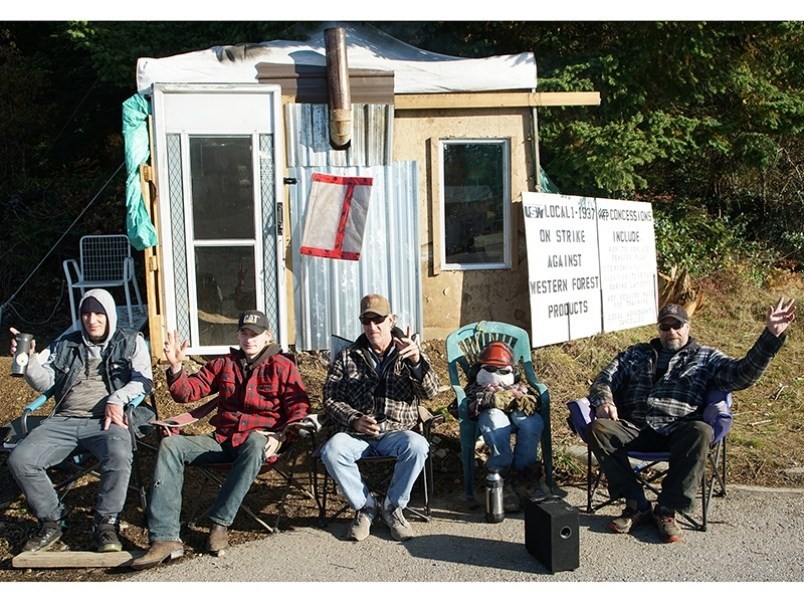United Steelworkers (USW) Local 1-1937 members remain committed to have the union continue its battle with Western Forest Products.
A media release from the union stated that just prior to Christmas, the union conducted membership meetings to overflow crowds in Port Alberni, Ladysmith, Powell River, Campbell River and Port McNeill. The release stated these information meetings were held to update the membership on all aspects of collective bargaining.
“The message our bargaining committee received from the membership was loud and clear,” stated Brian Butler, USW Local 1-1937 president. “After six months of strike, members want their union to continue fighting to ensure that they have safe shifts, secure jobs and dignity on the job. The local union remains extremely proud of the membership’s collective strength and solidarity during this struggle. Their unity and sense of purpose is inspiring.”
Butler stated the USW bargaining committee met with mediators Vince Ready and Amanda Rogers on January 9 in Richmond to review a significant compromise the union was willing to make on its alternate shift proposal. Butler stated the change in the union’s proposal was made in order to try and break the impasse over alternate shifts.
“After explaining our significantly revised proposal in detail, the mediators acknowledged those significant changes and left to speak by phone with WFP’s new negotiators to explain the union’s revised proposal,” stated Butler. “After speaking on the phone with WFP, the mediators returned to advise the union that WFP would not comment on the merits of the union’s revised alternate shift proposal and advised that WFP negotiators will not return to the bargaining table unless USW agrees with WFP’s concessionary proposal on contracting out.
“In order to reach an agreement, our bargaining committee made a large compromise on the deadlocked issue of alternate shifts. WFP negotiators dismissed the effort and refused to return to the bargaining table unless the union agree to contracting out concessions. It is an outrageous position for WFP to take and will never be agreed to by the union.”
The release stated that the union had a four-and-a-half-month strike in 1986 during which it gained the contracting out protection it has today. In 2014, WFP again proposed contracting out members’ jobs but withdrew the demand and reached a collective agreement that led to exceptional profits and put the company in a great financial position, according to the release.
“Today, WFP is again demanding that our members’ jobs be contracted out, a demand the union will never concede to,” stated Butler.
He further stated that there needs to be a public understanding that the strike is not about money, it’s about safety, job security, dignity and quality of life.
“It’s about family and it’s about the future,” he stated.
According to Babita Khunkhun, Western Forest Products’ senior director for communications, the company remains fully committed to doing everything it can to reach a mutually beneficial settlement.
“The mediators have advised that the USW is refusing to bargain on some aspects of the current proposal that have been under discussion over the last two months, including how to best support a healthy contractor community,” said Khunkhun. “We are hopeful that the USW will agree to resume collective bargaining on all items so we can finalize a package that will recognize our employees’ contributions while ensuring a sustainable coastal forestry industry.”



